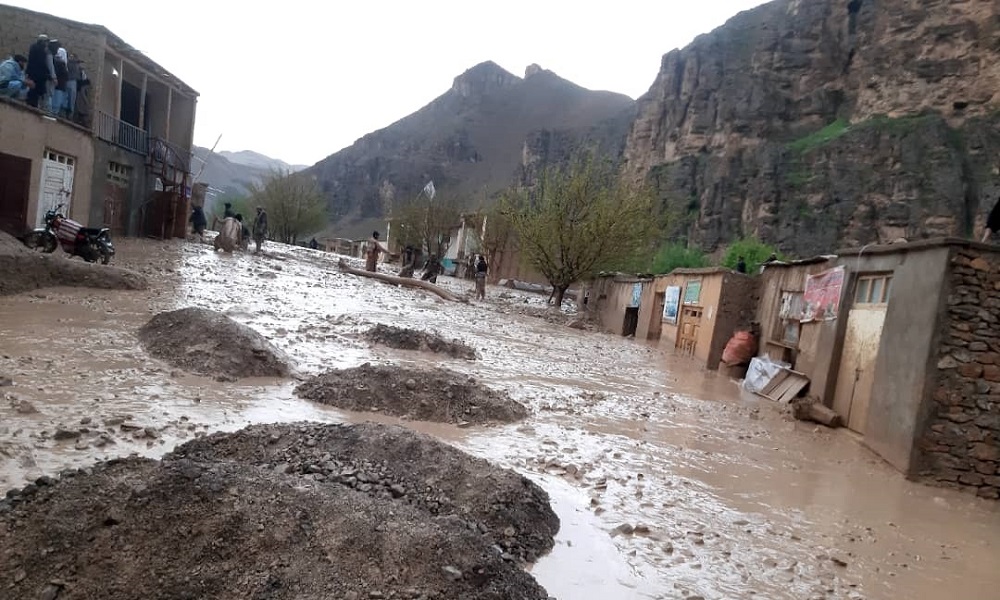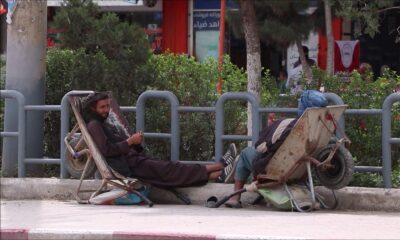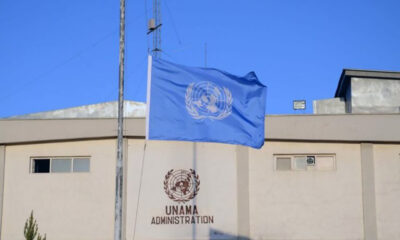Latest News
Afghanistan, Mexico designated as major drug hubs

President Obama on Monday designated 22 countries, including Afghanistan, Burma and Mexico, as “major drug transit and/or major illicit drug producing countries.”
The White House was careful to note that countries working to combat the drug trade can still wind up on the annual list because of a “combination of geographic, commercial, and economic factors that allow drugs to transit or be produced.”
Bolivia, Burma, which is now called Myanmar, and Venezuela were singled out as failing “demonstrably during the previous 12 months to adhere to their obligations under international counter-narcotics agreements,” according to the presidential determination sent to Secretary of State John Kerry.
Obama also declared that helping Burma and Venezuela fight drug producing and trafficking is “vital to the national interests of the United States.”
“[I]llegal poppy cultivation in Afghanistan is among the most difficult international drug-control problems,” Obama stated, adding that it has been the world’s largest poppy producer for 15 of the last 16 years.
Burma, which the Obama administration recently re-established ties with and is allowing U.S. businesses to invest in, and Laos are the next two biggest opium producers.
“[C]ountering illegal drug cultivation in Burma and Laos will require strengthening of state institutions and sustainable economic development,” Obama stated.
Obama praised Colombia, Haiti and Peru for their efforts to stamp out illegal drug production and trafficking.
“While Peru remains the top cocaine producer in the world, the Peruvian government has a comprehensive five-year counter-narcotics strategy to aggressively eradicate illicit coca, implement alternative development programs, interdict illicit narcotics and reduce domestic drug abuse,” Obama stated.
Although not on the list officially, Obama said China’s production of certain chemicals that can be used in synthetic drugs is of concern.
“The international community is also taking steps to focus attention on illegal drug activity in China, especially precursor chemicals produced in China that are diverted from legitimate commerce to criminal elements for the production of illicit plant-based and synthetic drugs,” he stated.
The following 22 countries were designated as major drug producers or gateways for fiscal 2016, a list that is unchanged from last year: Afghanistan, The Bahamas, Belize, Bolivia, Burma, Colombia, Costa Rica, Dominican Republic, Ecuador, El Salvador, Guatemala, Haiti, Honduras, India, Jamaica, Laos, Mexico, Nicaragua, Pakistan, Panama, Peru and Venezuela.
Obama noted that next April, the United Nations is convening a special session focusing on combating drug production and trafficking globally.
Source: Washington examiner

Latest News
IEA’s deputy PM invited to Russia to participate in an international meeting

Russian ambassador in Kabul, Dmitry Zhirnov, on Sunday invited the political deputy prime minister Mawlawi Abdul Kabir to participate in an international meeting that is expected to be held in Kazan city, Tatarstan.
According to a statement issued by the deputy PM’s office, in his meeting with the Russian ambassador, Kabir thanked him for the invitation to this meeting and said that relations between Russia and Afghanistan are important and friendly and Russian businessmen should invest in Afghanistan.
He added that relations between Moscow and Kabul benefit both sides and can help development and stability in the region.
According to the statement, the Russian envoy said that his country is ready to cooperate with Afghanistan in various fields and wants to expand bilateral relations.
He added that cooperation and increased interaction between the Islamic Emirate and Russia can contribute to stability and economic development in the region.
Latest News
Hundreds of families displaced due to floods in Ghor

The Directorate of Migration Affairs in Ghor says one person was killed, two were injured and more than 500 families displaced due to Saturday’s floods in two districts of the province.
The directorate added that floods occurred in Murghab and Chaharsada districts of Ghor, which affected more than ten villages in Marghab district and six villages in Chaharsada district.
According to the directorate, 55 shops, and 10 residential houses have been destroyed and the roads between the two districts are also blocked.
The directorate quoted Mir Ahmad Mosamem, the head of migrant affairs in Ghor, as saying that families from their original places are living in the open air in the mountains and are in urgent need of basic assistance.
According to him, the possibility of more losses is expected.
Latest News
Ban on opium cultivation in Afghanistan cost farmers $1.3 billion

The ban on opium cultivation precipitated a staggering $1.3 billion loss in farmers’ incomes, equivalent to approximately 8 percent of the country’s GDP, the World Bank said in a new report.
The bank said that over the past two fiscal years, the real GDP of Afghanistan contracted by 26 percent, and the country’s economic outlook remains uncertain, with the threat of stagnation looming large until at least 2025.
According to the report, structural deficiencies in the private sector and waning international support for essential services are anticipated to impede any semblance of economic progress.
Half of Afghanistan’s population lives in poverty and 15 million people face food insecurity, it noted.
“Afghanistan’s long-term growth prospects depend on a significant shift from its previous reliance on consumption-driven growth and international aid to a more resilient, private sector-led economy that capitalizes on the country’s strengths,” said Melinda Good, World Bank Country Director for Afghanistan.
“For a sustainable future, Afghanistan needs to address harmful gender policies, invest in health and education, and focus on the comparative advantages it has in the agricultural and extractive sectors.”
The World Bank pointed out that the increase in Afghanistan’s trade deficit is another challenge for the country’s economy. According to the bank’s report, in 2023, Afghanistan’s imports increased by 23% and reached $7.8 billion.
-

 Sport5 days ago
Sport5 days agoAfghanistan announce T20 World Cup 2024 squad
-

 Sport5 days ago
Sport5 days agoNew Zealand to go ahead with Afghanistan cricket Test
-

 Latest News5 days ago
Latest News5 days agoWorld Bank donates $84 million to Afghanistan
-

 Regional5 days ago
Regional5 days agoIsrael will enter Rafah with or without Gaza hostage deal, Netanyahu says
-

 Latest News4 days ago
Latest News4 days agoWork permits issued to over 2,000, including women: Labor Ministry
-

 Sport5 days ago
Sport5 days agoAll-round Stoinis helps Lucknow beat Mumbai in IPL
-

 Sport4 days ago
Sport4 days agoSorkh Poshan Khafi and Khadim FC winners in their ACL matches
-

 Latest News4 days ago
Latest News4 days agoUNAMA issues latest rights report, notes ongoing challenges for women, girls and media















